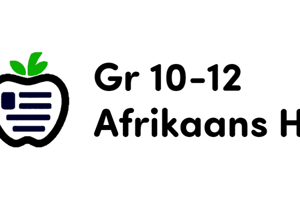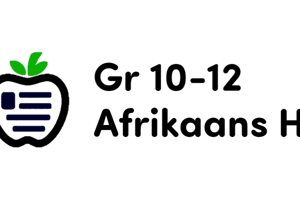Podcast
Questions and Answers
The smallest linguistic unit with meaning is known as a:
The smallest linguistic unit with meaning is known as a:
- Root
- Free morpheme
- Word
- Morpheme (correct)
What does the study of Morphology focus on?
What does the study of Morphology focus on?
- Word formation (correct)
- Sound structure
- Sentence structure
- Syntax
Which of the following morphemes occur before the root?
Which of the following morphemes occur before the root?
- Suffixes
- Base morphemes
- Infixes
- Prefixes (correct)
The morpheme in the word 'fathers-in-law' is classified as:
The morpheme in the word 'fathers-in-law' is classified as:
Which type of affixes can pile up in the formation of words?
Which type of affixes can pile up in the formation of words?
What is the process of adding prefixes and suffixes to a base called?
What is the process of adding prefixes and suffixes to a base called?
The feminine form of 'patron' is:
The feminine form of 'patron' is:
Which of the following statements is true about compound words?
Which of the following statements is true about compound words?
Which of the following identifies not reduced forms of independent words?
Which of the following identifies not reduced forms of independent words?
What is the feminine form of the word 'heir'?
What is the feminine form of the word 'heir'?
What does the term 'suppletion' refer to?
What does the term 'suppletion' refer to?
Which of the following statements is true regarding derivational affixes?
Which of the following statements is true regarding derivational affixes?
What does 'Redcoat' refer to?
What does 'Redcoat' refer to?
What role does the second element in compound words play?
What role does the second element in compound words play?
Which of the following describes zero morphemes?
Which of the following describes zero morphemes?
What type of morphemes are expletives classified as?
What type of morphemes are expletives classified as?
Flashcards
Morpheme
Morpheme
The smallest unit of meaning in a language.
Free Morpheme
Free Morpheme
Can stand alone as a word (e.g., 'cat', 'run', 'happy').
Bound Morpheme
Bound Morpheme
Cannot stand alone; must attach to a free morpheme (e.g., 'un-', '-ing').
Root/Base
Root/Base
Signup and view all the flashcards
Affix
Affix
Signup and view all the flashcards
Prefix
Prefix
Signup and view all the flashcards
Suffix
Suffix
Signup and view all the flashcards
Inflectional Morpheme
Inflectional Morpheme
Signup and view all the flashcards
Derivational Morpheme
Derivational Morpheme
Signup and view all the flashcards
Allomorph
Allomorph
Signup and view all the flashcards
Zero Morpheme
Zero Morpheme
Signup and view all the flashcards
Compound Words
Compound Words
Signup and view all the flashcards
Word Formation
Word Formation
Signup and view all the flashcards
Affixation
Affixation
Signup and view all the flashcards
Conversion
Conversion
Signup and view all the flashcards
Syntax
Syntax
Signup and view all the flashcards
Study Notes
Morphology
- Morpheme: The smallest unit of meaning in a language.
- Free Morpheme: Can stand alone as a word (e.g., "cat", "run", "happy").
- Bound Morpheme: Cannot stand alone and must be attached to a free morpheme (e.g., "un-", "-ing", "-ly").
- Root/Base: The core of a word to which affixes are added.
- Affix: A bound morpheme that is added to a root/base to modify its meaning or grammatical function.
- Prefix: An affix that is added to the beginning of a word (e.g., "un-", "re-", "pre-").
- Suffix: An affix that is added to the end of a word (e.g., "-ing", "-ed", "-ly").
- Inflectional Morpheme: An affix that changes the grammatical function of a word (e.g., "-s" for plural, "-ed" for past tense).
- Derivational Morpheme: An affix that creates a new word with a different meaning or category (e.g., "-ness", "-ly", "-er").
- Allomorph: Variations of a morpheme that have the same function but different sounds (e.g., the plural marker "-s", "-es", or "-ies").
- Zero Morpheme: A morpheme that has no sound but contributes to the meaning of a word.
- Empty Morpheme: A morpheme that has no meaning or function beyond indicating the existence of a word (e.g., the "o" in "tomato").
- Compound Words: Words formed by combining two or more words (e.g., "blackboard", "sunlight").
- Phrasal Verbs: Verbs combined with prepositions (e.g., "look up", "give up").
- Clitics: Words that are phonologically dependent on another word and have no meaning or function outside of it (e.g., "n't" in "don't").
- Suppletion: When unrelated words are used for different forms of a word (e.g., "go, went, gone").
Feminine Forms
- Forming feminine words often involves adding suffixes like "-ess" (actress), "-enne" (patronne), or "-ine" (heroine).
- Some feminine forms are irregular and require memorization (e.g., "lioness", "aviatrix").
Word Formation
- Word Formation: The process of creating new words.
- Affixation: Adding affixes to a root/base.
- Compounding: Combining two or more words.
- Conversion: Changing the grammatical category of a word without adding an affix (e.g., "run" as a verb and "run" as a noun).
Other Concepts
- Phonology: The study of sound systems in a language.
- Syntax: The study of sentence structure.
- Pragmatics: The study of meaning in context.
Additional Information
- Multiple suffixes (affixes) can be attached to a single word, but the order can affect the resulting meaning.
- Compound words can behave grammatically as single words.
- Some words may not have an obvious morphological structure but are still considered words (e.g., "receive").
Studying That Suits You
Use AI to generate personalized quizzes and flashcards to suit your learning preferences.




